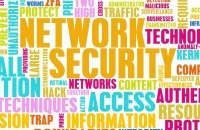Common Sense
Internet Safety Tips
Observing a few common sense Internet Safety Tips may save you or your family a world of trouble.
As mentioned in Computer Internet Security there were one billion personal computers world-wide as of June 2008 (ref: Wikipedia)... with predictions this will rise to two billion by 2014.
And remember, not everyone out there is your "friend".
You need to be on your guard against computer attack from hackers, crackers, scammers, and worse.
Internet Safety Tips For Shoppers.

- If it sounds too good to be true, it probably is.
- Before shopping online make sure you have installed adequate, up to date anti-virus, anti-spyware software
and a firewall to protect your credit details.
- Be on the lookout for fake, malicious websites posing as legitimate businesses, financial or
government institutions, even charities, that want your money or personal details.
- Only carry out transactions on a secure site where your information is encrypted
(e.g. one using SSL for "secure sockets layer"). These show your URL as "https:" instead of "http:" and display a padlock icon.
Warning: malicious websites have been known to display fake padlock icons.
- Use a credit card rather than a debit card. Credit cards usually limit your liability
to fraudulent transactions.
- Consider using a special credit card solely for online transactions which has a low credit limit. Alternatively, use a special debit card with only a small amount on deposit.
Internet Safety Tips For Children.

This video put out by Google and Common Sense Media on Internet Safety for children covers the topic well and offers very sound advice.
Social Networking Internet Safety Tips.
- Don't post anything you don't want the world to know or see. Once it goes online you can't retract it.
- Evaluate your Security Settings. Chat room software is often relatively permissive so as to be
"user friendly" making it more susceptible to attack. Adjust default privacy settings to restrict access and reduce risk.
- Be careful about giving out too much personal information, including personal photographs.
The Internet can provide a false sense of anonymity or privacy due to the lack
of physical interaction. People often give out more online than they ever would to a stranger in the street.
- Online chat rooms attract many predators and types with malicious intent hoping to prey on the gullible or susceptible.
- Think twice before running a program or clicking on a link suggested by someone you don't know well online.
Attackers target these sites to distribute malicious code.
- Whether you're looking for friendship, a romantic relationship, or business connections... remember, on the
Internet what you see or read is not necessarily what you get.
- Never arrange to meet strangers you only met on the Internet. It has proved fatal for some.
Workplace Internet Safety Tips.

- If your organization uses an auto-responder to your emails don't advertise when you'll be
away from home and for how long. Be careful how you phrase your message.
- Nothing is "private" on the internet. Don't post derogatory comments about fellow workers or your
organization under the cloak of "anonymity". You'll live to regret it and may end up being fired or sued.
- Lock your computer when unattended to prevent unauthorized, malicious access.
- Don't abuse company time for your own personal, dubious online pursuits. Your boss won't take to it kindly.
- Don't divulge sensitive business information while networking social sites and chat rooms.
Who Ate My Lunch?
by Eugene Roberts

The Internet Revolution, Globalization, and the Global Financial Crisis created the perfect storm... Old Business models are being destroyed and jobs are disappearing offshore at an astonishing rate. Analysts warn that "China and India are poised to out-think us and out-compete us by their sheer numbers" and that "there is no job security now".
Read more of
Who Ate My Lunch?
for free.






